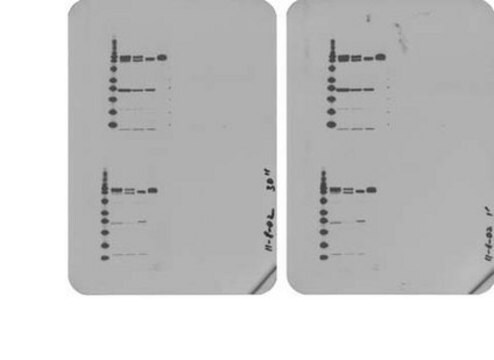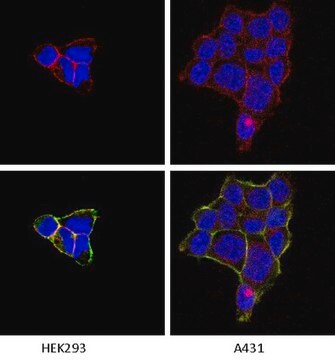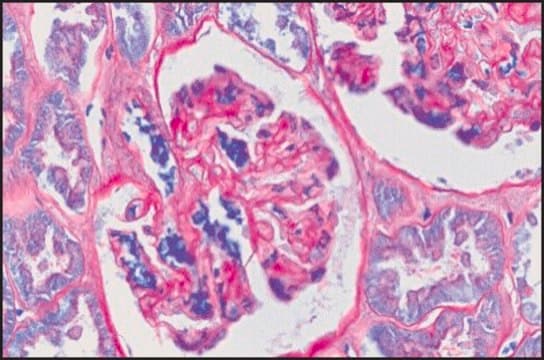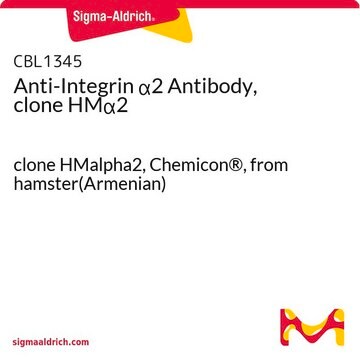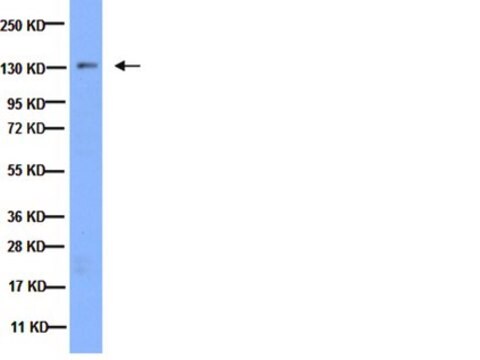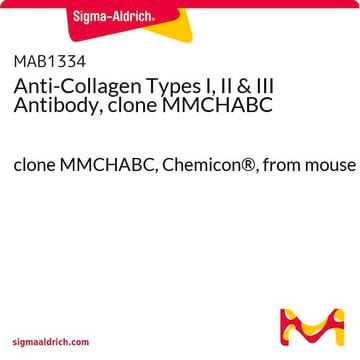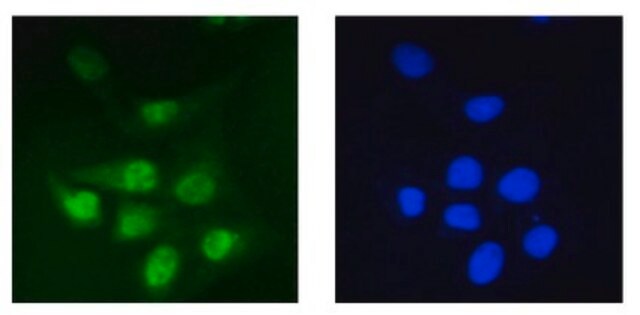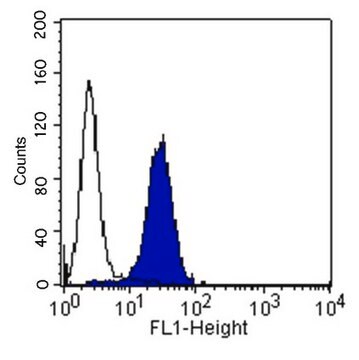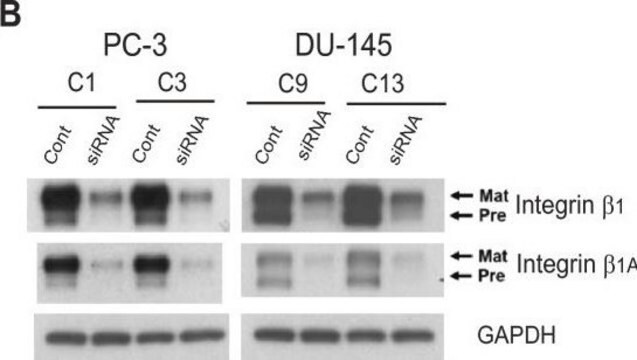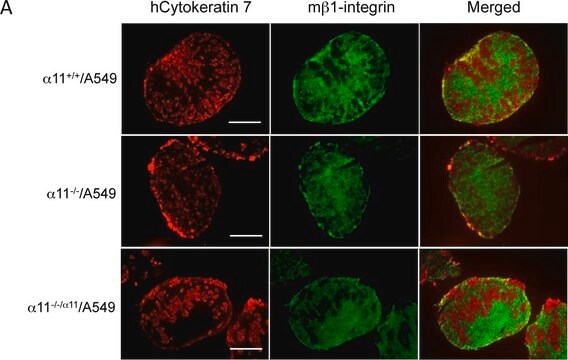AB1936
Anti-Integrin α2 Antibody
serum, Chemicon®
Synonym(s):
CD49b
About This Item
Recommended Products
biological source
rabbit
Quality Level
antibody form
serum
antibody product type
primary antibodies
clone
polyclonal
species reactivity
chicken, rat, hamster, mouse, human
manufacturer/tradename
Chemicon®
technique(s)
ELISA: suitable
immunofluorescence: suitable
immunohistochemistry: suitable
immunoprecipitation (IP): suitable
radioimmunoassay: suitable
western blot: suitable
NCBI accession no.
UniProt accession no.
shipped in
wet ice
target post-translational modification
unmodified
Gene Information
human ... ITGA2(3673)
Specificity
Immunogen
Application
ELISA/RIA: 1:1000
Western blot: 1:1000 The antibody has been used to report alpha2 expression in HUVECs during tubule-like structure formation in collagen (Deroanne, 1996). Recognizes ~160kDa alpha 2 subunit
Immunoprecipitation: 5 μL precipitates alpha2/beta1 from 5 x 106 cells.
Immunohistochemistry: 1:500
Optimal working dilutions must be determined by end user.
Cell Structure
Integrins
Target description
Physical form
Storage and Stability
Analysis Note
Skin (basement membrane), High grade ovarian tumors
Other Notes
Legal Information
Disclaimer
Not finding the right product?
Try our Product Selector Tool.
Storage Class
10 - Combustible liquids
wgk_germany
WGK 1
Certificates of Analysis (COA)
Search for Certificates of Analysis (COA) by entering the products Lot/Batch Number. Lot and Batch Numbers can be found on a product’s label following the words ‘Lot’ or ‘Batch’.
Already Own This Product?
Find documentation for the products that you have recently purchased in the Document Library.
Our team of scientists has experience in all areas of research including Life Science, Material Science, Chemical Synthesis, Chromatography, Analytical and many others.
Contact Technical Service